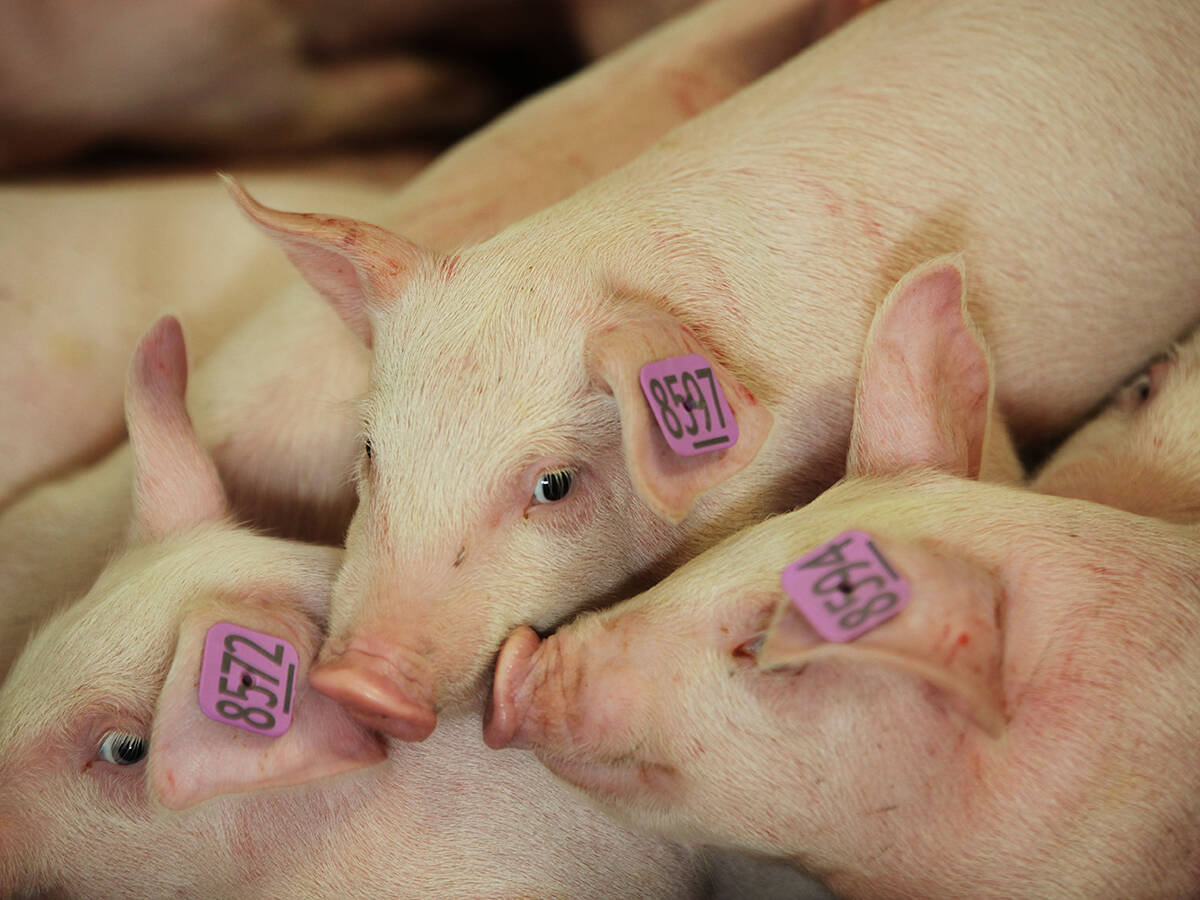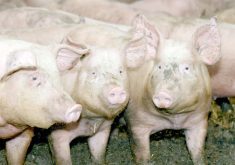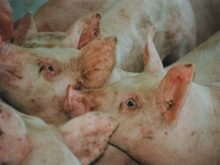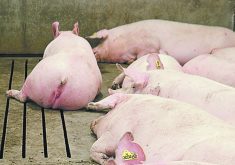Sector says feds should have retaliatory tariffs locked and loaded if the U.S. enacts voluntary country-of-origin labelling
Manitoba Pork will support retaliatory tariffs if the U.S. goes ahead with its voluntary country of origin labeling scheme, producers heard at a recent meeting.
“It’s my view that if the U.S. moves ahead with these changes, Canada will have the right to impose those retaliatory tariffs … We are again requesting the government of Canada to fight back,” said Cam Dahl, general manager of Manitoba Pork, as eastern Manitoba’s pork producers met in Niverville in November.
In March, the Biden administration proposed rules that would require any meat, poultry or eggs labelled as a U.S. product to be derived from animals raised and slaughtered in the country, not just processed there, as current rules allow.
Read Also

The Western Producer Livestock Report – October 16, 2025
Western Producer Livestock Report for October 16, 2025. See U.S. & Canadian hog prices, Canadian bison & lamb market data and sales insights.
Previous mandatory country of origin labeling made American buyers shy away from Canadian animals, as they were forced to segregate them from American ones. That barrier became the basis of a years-long fight between the U.S., Canada and Mexico, with the latter two successfully petitioning their case before the World Trade Organization.
Mandatory COOL was eventually struck down after the last round of WTO appeals found in favour of Canada and Mexico and the WTO authorized significant retaliatory tariffs for both complainant countries.
Canadian livestock sectors are concerned that voluntary country of origin labeling (VCOOL) could have similar effects as its predecessor.
Manitoba ships millions of weanlings into the U.S. each year. Since those animals are raised and processed south of the border, they can be labeled as product of the U.S.
“We have to fight to make sure that [Canada’s trade agreements} work for us and then we have to fight to make sure that our trading partners are standing up to their obligations,” Dahl said.
The Canadian government has said officials are discussing the issue with their American counterparts.
“Officials at all levels are raising Canada’s concerns with the proposed voluntary ‘Product of USA’ rule in meetings with U.S. officials, including Minister MacAulay during recent meetings with [U.S. Agriculture] Secretary Vilsack and [U.S.] Ambassador Cohen,” an Agriculture and Agri-Food Canada spokesperson said in a Nov. 15 email.
American officials say they’ll take Canada’s comments into account, the spokesperson said.
“The WTO ruled in 2015 that mandatory COOL measures in the U.S. discriminated against Canadian exporters, and we expect the U.S. to continue abiding to this ruling and its WTO obligations,” the spokesperson added.
At Manitoba Pork’s annual general meeting this spring, visiting representatives from Iowa and Minnesota pork groups said that, while the American beef industry is on board with VCOOL, the hog industry is less than enthused.
“We love the trade,” said Aaron Juergens, a hog farmer and director with the Iowa Pork Producers Association.
Their sector can’t afford disruptions in shipments of Manitoban isoweans, he added.
The support is “coming from more the people who want to know where their food is coming from,” said John Anderson, president of the Minnesota Pork Producers Association.


















